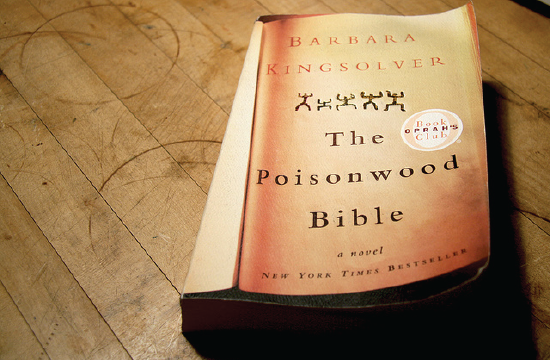Summary
Book One: Genesis opens with a reflection from Orleanna Price on the time she and her family spent in the Congo, as well as the consequences of what happened there. When talking about the way the reader will view her and her daughters, she warns, “Be careful. Later on you’ll have to decide what sympathy they deserve.” This alludes to Orleanna’s opinion that while they may not have chosen to go to the Congo, each is responsible, in part, for what would unfold.
We then transition into the family’s move to the Congo and the early days of their time there, as told by the four Price daughters: Rachel, Leah, Adah, and Ruth May. As each one offers their perspective of events, we gain insight into the Price family members and the dynamics of their relationships, not only through their narratives, but through the experiences and values that have informed their unique voices as well.
Leah details the things they carried with them, most of which they would find to be unnecessary or to work completely differently upon their arrival in Africa. The girls then share their initial reactions to Kilanga, the people living in the village, and their interpretation of their father’s approach when meeting and interacting with the people and the land. Through Nathan Price’s approach, we see clearly the consequences of entering a place without knowledge of the culture and the devastating results when one refuses to heed the advice of the local people.
Themes
Culture; Consequence
Powerful Lines*
- But Africa shifts under my hands, refusing to be party to failed relations. (Orleanna, 11)
- Like the village road and the river, nothing here really continues to its end. The Congo is only a long path that takes you from one hidden place to another…Nevertheless, I am determined I will walk that path, even though I do not walk fast or well. (Adah, 40)
- The grace of our good intentions made me feel wise, blessed, and safe from snakes. (Leah, 42)
- Instead of abundance it was a holiday of waste. No ice. Our Father forgot, for fishing in the style of modern redneck Georgia you need your ice. (Adah, 86)
- I felt confusion and dread. I sensed that the sun was going down on many things I believed in. (Leah, 99)
Questions to Ponder
- The story is told through the five distinct voices of the Price women. How does this influence the development of the story and our interpretation of the events that take place? How does it inform our perception of Nathan Price?
- While the girls tell the story as it unfolds, Orleanna’s section is written as a reflection from the future. Why do you think this is? What does this foreshadowing tell you about what is to come? What does her story of the okapi represent?
- What were the results when Reverend Price acted without regard to or understanding of the cultural context of Kilanga? What does this tell us about working with and in other cultures?
- At the conclusion of Book One, what have you gathered about the preconceived ideas the family held about land and the people they would encounter?
*Quotes cited according to 2003 HarperTouch edition.

